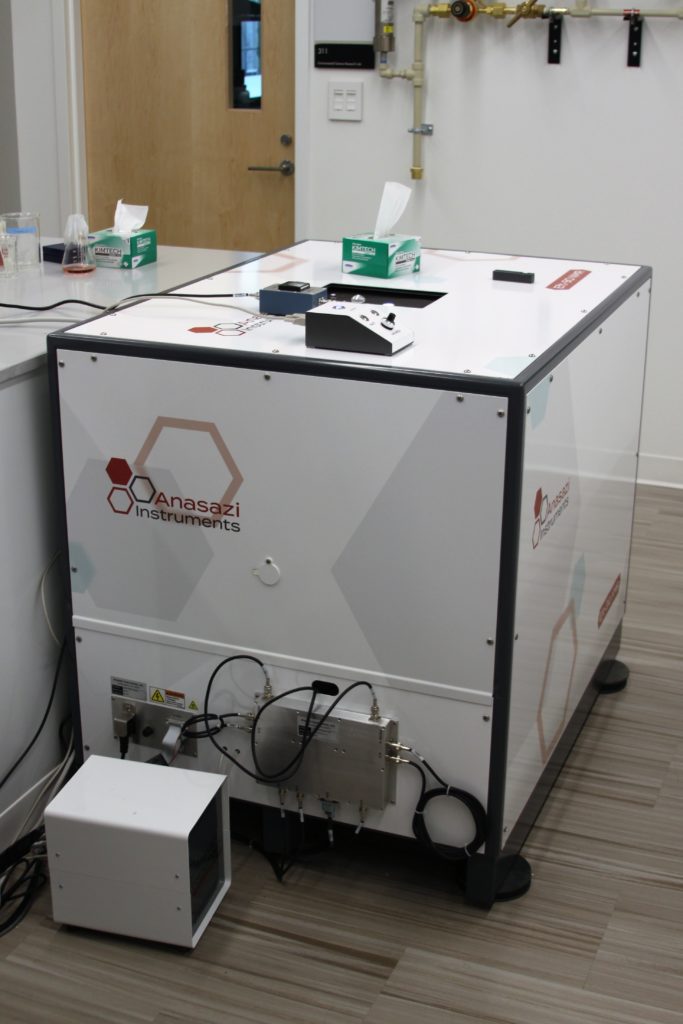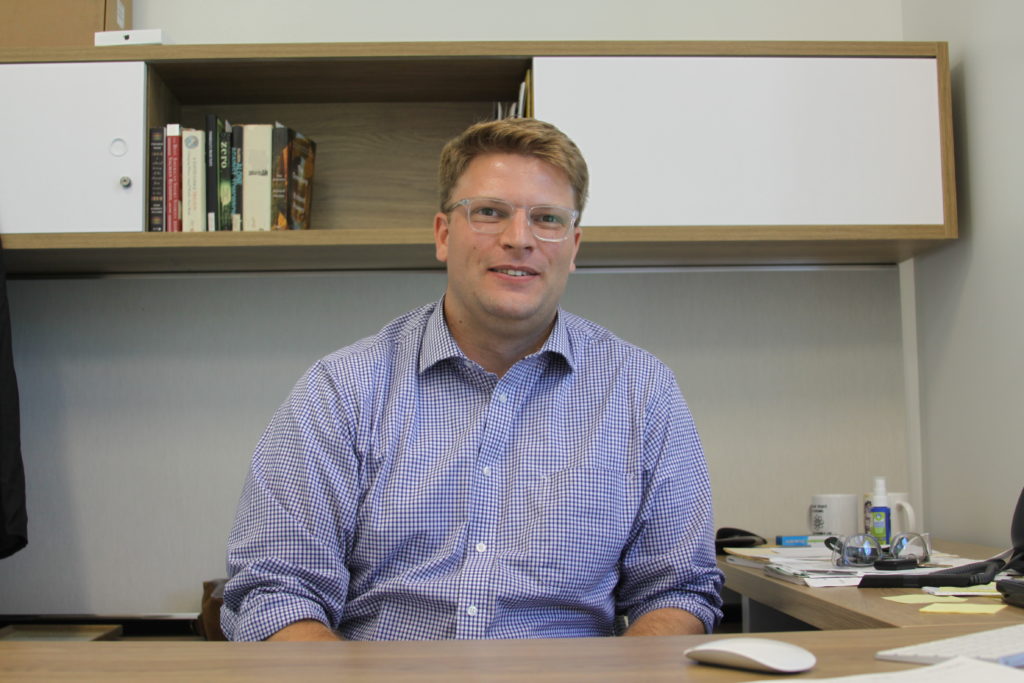Oglethorpe is home to a new Nuclear Magnetic Resonance (NMR) spectroscope.
“It’s like an MRI, but for a molecule,” explained Dr. Andrew Walden, assistant professor of organic chemistry. “Everyone who is taking chemistry is going to be using it. That means physics, chemistry, all the biology majors.”

Oglethorpe’s Nuclear Magnetic Resonance spectroscope
Nuclear Magnetic Resonance (NMR) spectroscopy is a technique used to evaluate the structure of a chemical compound. The NMR instrument uses a powerful magnet to take the nuclei from a relaxed state (where they spin randomly) to a resonant state (where they alternate between spinning with or against the external magnetic field). The spectrometer then uses a radio frequency pulse to probe these spin states and generate a spectrum, which makes it possible to examine and determine a compound’s unique structure, concentration, and purity.
The equipment was added as part of the construction of the I.W. “Ike” Cousins Center for Science and Innovation, which opened in 2019.
“I’m really excited that we now have this capability,” said Walden. “I’ve been at other schools that have more expensive instruments and more [equipment], but the student’s don’t get to use them.”
All science students at Oglethorpe are required to take chemistry classes up to at least CHM 102. Because of Oglethorpe’s size — an average class has only 17 students — science students are going to get in-depth experience with the NMR that Walden says is not common at bigger schools.
Oglethorpe University’s small size is what inspired Walden to teach here.

Dr. Andrew Walden, in his new Cousins Center office
“Teaching is what I’m most passionate about,” he said. “Educating undergraduates is the goal of my teaching, but also the goal of the research that I’m going to do here. […] I was really excited about coming here because I think it is, in many ways, the best place to do the kind of teaching that I want to do. I want to be able to interact with my students more [and] do the kind of innovative pedagogy that you might not be able to do at a big school.
“I went to big state schools for undergraduate and graduate [school], spent a little time in an Ivy League school. And I thought that that was the best place to learn chemistry,” continued Walden “When I got to graduate school, I realized I was wrong and that a lot of the best chemists that I met were my classmates who had gone to smaller schools. I was exposed to different kinds of research than they were, but they were interacting much more with their faculty members [and] they received a lot more guidance.”
Dr. Walden is a relatively new addition to Oglethorpe’s science faculty, having joined in 2018. He received an undergraduate degree in chemistry from the University of Virginia, and a doctorate in chemistry from the University of North Carolina, Chapel Hill.
“I think Oglethorpe is a really exciting place to be a science major.”
His academic and research interests lie in the synthesis of organic compounds. Before working at Oglethorpe, Walden was doing post-doc lab research at Yale University with Dr. Nilay Hazari.
“I was on a National Institute of Health grant, studying nickel-catalyzed cross-coupling reactions,” Walden said. “That project that I was a part of was [focused on] developing new methods to make important carbon-carbon bonds. The pharmaceutical industry is constantly interested in understanding better ways to make molecules that we already know are of interest. […] There’s a whole area of organic chemistry that’s concerned with making [a] molecule that we’ve been able to structurally identify.”
During his time at as a postgraduate student at UNC, Walden worked under Dr. Alexander Miller, studying energy-rated reactions to artificially simulate photosynthesis.
Currently, he is working with undergraduate students, combining his past research experiences and expertise to study compound synthesis and electro-chemical reactions.
“It’s really not worth doing this research if [the students] aren’t gaining something from it. They’re the focus. The goal is to train undergraduates. I think Oglethorpe is a really exciting place to be a science major.”
